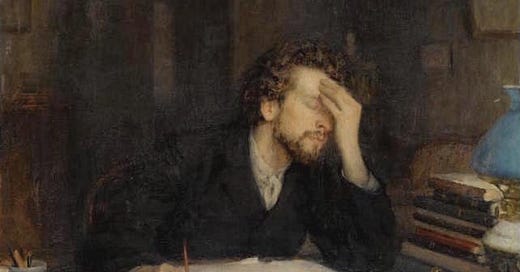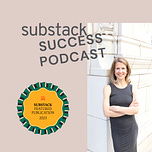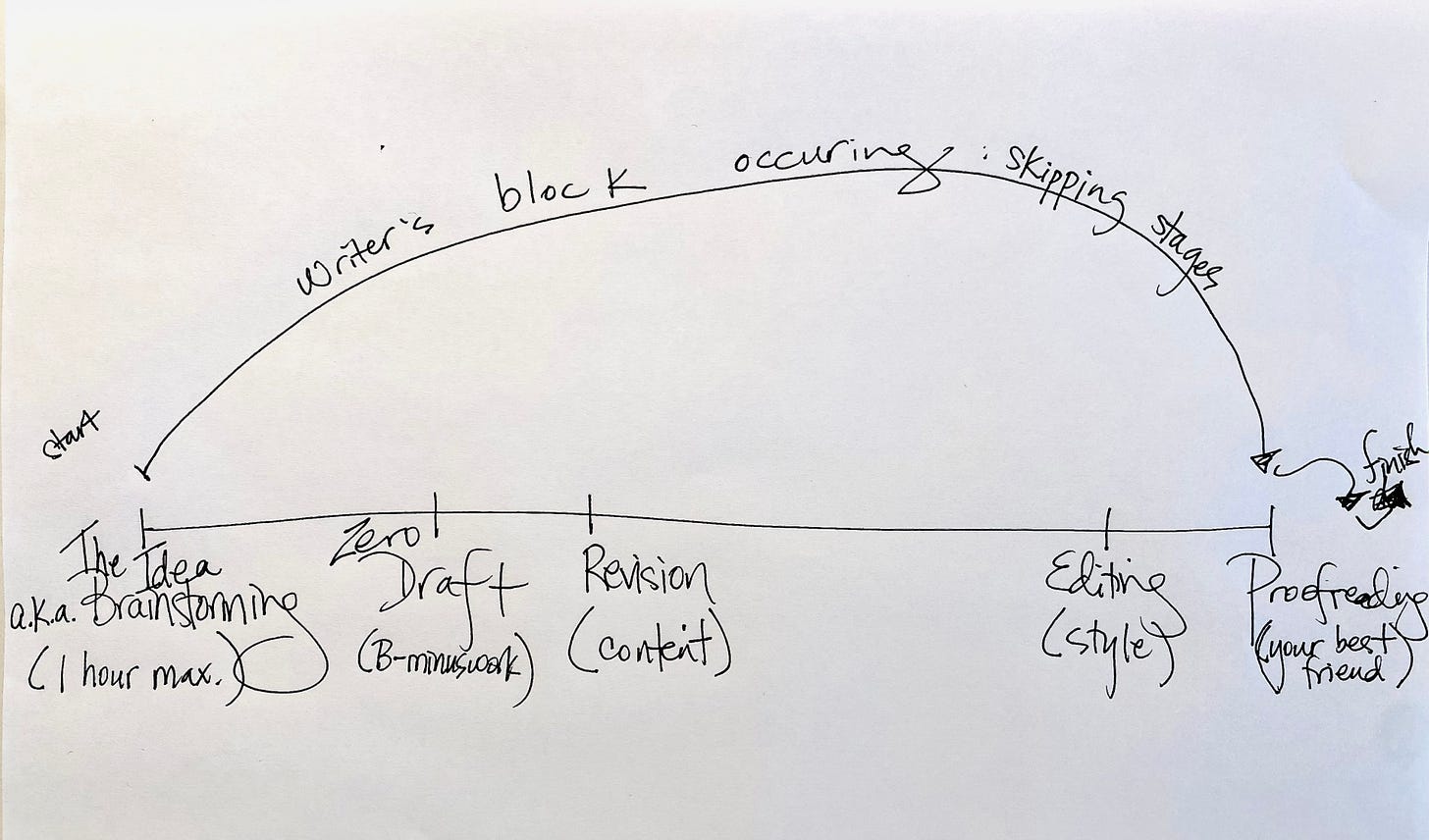I love Wikipedia’s definition of writer’s block:
“Writer's block is a condition, primarily associated with writing, in which an author is either unable to produce new work or experiences a creative slowdown.”
So melodramatic: The author is unable to produce new work. Practically an illness: a condition.
I also love the image Wikipedia chose to accompany the entry: 19th- and 20th-century impressionist painter Leonid Pasternak’s “The Passion of Creation.” High drama. Total despair. (Google the phrase writer’s block, and that image will come up a lot.)
You have to understand that Leonid was friends with Leo Tolstoy, perhaps the most melodramatic author to set foot on this earth. (That’s not a dig at Tolsoy’s writing—come on, War and Peace, Anna Karenina—but Tolstoy had a way of creating drama in his life. He was a serious philanderer, made his wife Sophia a slave to him and then left her at the age of 82, and started what was basically a cult that got him excommunicated from the Russian Orthodox Church.) (Yes, Leonid was also the father of Boris, author of Dr. Zhivago, and about a gazillion poems. No writer’s block there.)
Writer’s block can be applied to visual artists, but usually, it’s just us. Surgeons don’t get surgeon’s block. Electricians don’t get electrician’s block.
Writers like drama. That’s our bread and butter. And sometimes, our love of drama seeps into our lives in ways that aren’t productive.
(For those of you who are too hard on yourselves, don’t read this paragraph.) Writer’s block is convenient, isn’t it? We can’t work. It’s a condition. Through the ages, writers have been at its mercy, so why not me?
Writer’s block is a myth. I’m not saying it doesn’t feel real or isn’t an actual experience; it is. It’s torture. But it’s unnecessary and easily—if we want to resort to medical terminology—cured.
The Basics
Writer’s block occurs for three reasons:
impatience,
self-judgment, and
self-doubt.
1. Impatience
Writing, as you probably know, is a process. There’s no way to beat that or worm your way around it or trick it or cheat it. You have to go through the entire process.
The Writing Process, as I see it, may be different. Here’s how I break it down:
Stage 1: Idea Building
Stage 2: The Zero Draft
Stage 3: Revision (for content)
Stage 4: Editing (for style)
Stage 5: Proofreading (your best friend)
Writer’s block occurs when you try to skip a step—like this:
You can’t go from the idea in your mind to the finished (brilliant) result without going through all the messy parts.
2. Self-Judgment
Let’s say you finish that initial draft. You’ve made a miracle happen—turned an idea, the ephemeral, into words and sentences and then a written narrative, an actual concrete thing that others can read. The rush of having worked miracles makes you feel like the most brilliant writer alive.
Fantastic.
But then…
You leave your computer and go for a walk or whatever you do. And when you return, you read what you’ve read and feel like the worst writer alive. You berate yourself. You never want to look at a word you’ve typed again.
Your judgments make you never want to write again. And rightfully so. Who would want to? After all, you’re going to make a miracle happen, and what will you get for it? A terrible voice telling you what a terrible writer you are.
The truth is you’re not terrible. You’re a miracle worker. You’re a writer who just produced a Zero Draft (see The Writing Process Isn’t What You Think). That Zero Draft is a triumph. Most people have ideas for novels, TV shows, and memoirs and never write a single one. What you’ve done is cause for celebration.
It’s the foundation on which you will make more miracles happen.
3. Self-Doubt
If you’re saying to yourself, But Sarah, I really don’t have any ideas, listen to the recording above (or listen again).
Your brain is endlessly creative. You can’t stop it from coming up with ideas. The trick is to direct it.
Ask it questions:
How can I end chapter 1 that will make readers want to keep reading?
What should I name this novel or memoir to draw readers in?
This is a bit more brutal, but you can try this:
If you had to have an idea about what to write right now or else someone will kill your child or partner or parent or dog or (gasp!) cats, what would that idea be?
Get my expert eyes on your Substack and discover how to use Substack to reach your goals—book a Single Substack Strategy Intensive or Strategic Substack Growth Package.
















Share this post